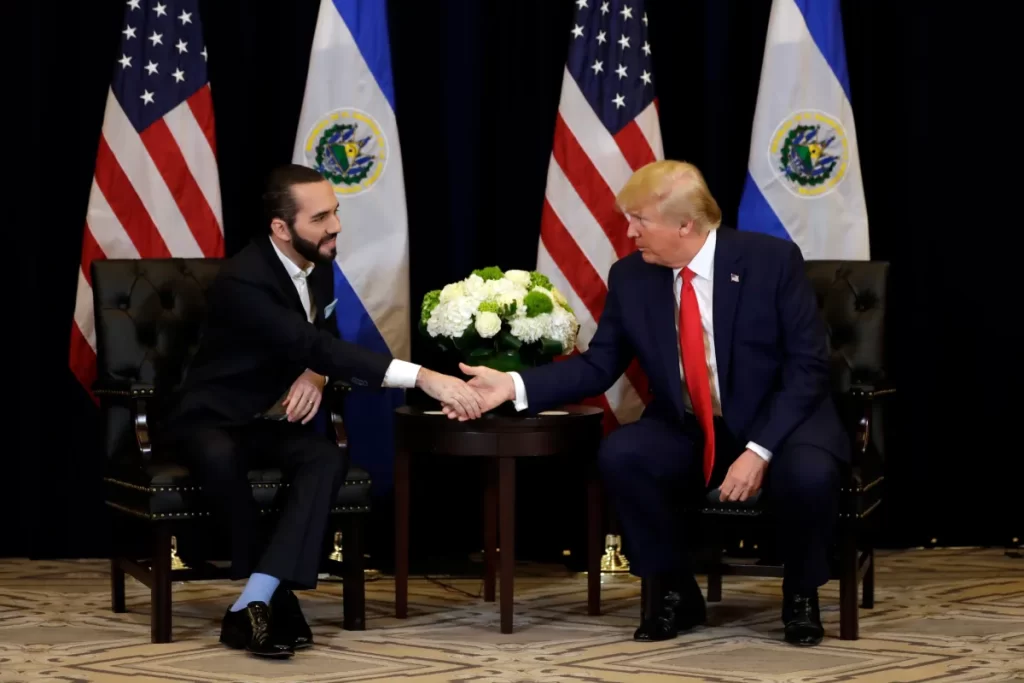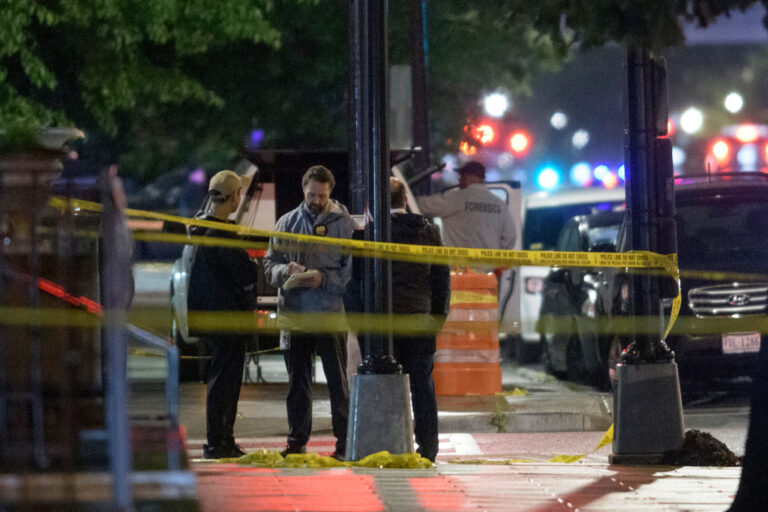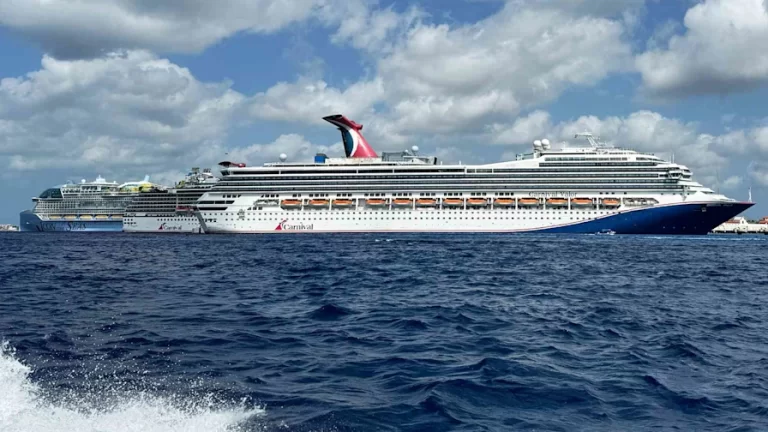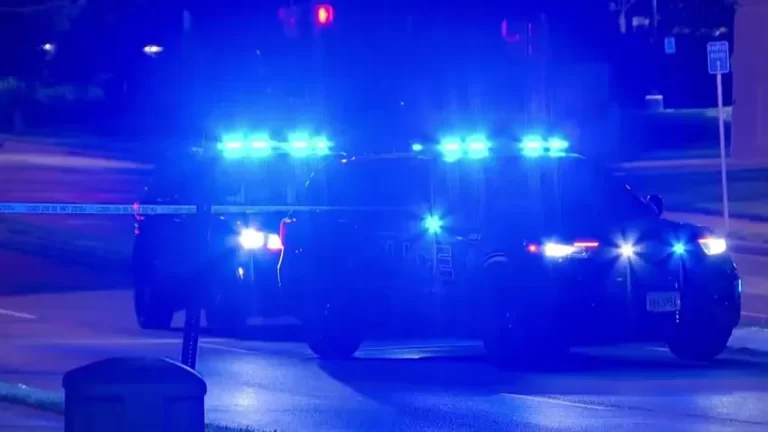
April 14, 2025 — Washington, D.C.
During a high-profile meeting at the White House on Monday, El Salvadoran President Nayib Bukele told former U.S. President Donald Trump that America has “350 million people to liberate” by cracking down on crime and terrorism — drawing parallels between El Salvador’s transformation and Trump’s tough-on-crime platform.
Speaking from the Oval Office, Bukele highlighted his country’s remarkable turnaround, declaring:
“We know that you have a crime problem and a terrorism problem that you need help with. And we’re a small country, but we can help.”
Bukele pointed to El Salvador’s success in reversing its reputation as “the murder capital of the world”, a label long used by international media. Under his leadership, he said, El Salvador has become “the safest country in the Western Hemisphere.”
“I like to say that we actually liberated millions,” Bukele added, a line that was met with enthusiastic praise from Trump, who nodded and applauded the Salvadoran president’s assertive rhetoric.
The meeting underscored the growing alignment between Bukele and Trump, both of whom have made crime prevention, anti-gang operations, and strong national security policies central to their leadership styles.
Bukele’s aggressive crackdown on gangs, including mass arrests and expanded security operations, has drawn both praise and criticism internationally — but has been credited with record-breaking drops in violent crime across El Salvador.
Trump, who is campaigning for another term in the White House, welcomed Bukele’s comments and lauded the Salvadoran president’s leadership, suggesting the U.S. could learn from El Salvador’s model of enforcement and rapid action.
“What he’s done is incredible,” Trump said. “We need strong leadership like this to take back our cities and our streets.”
Observers say the optics of the meeting — two populist leaders with tough-on-crime reputations — are likely to resonate with conservative voters who have grown increasingly concerned about rising crime in major U.S. cities.
While the meeting was largely symbolic, it served as a powerful moment of political synergy between the two leaders, both advocating for decisive governance to restore law and order.






